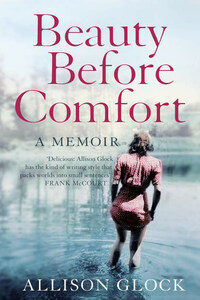Bless her heart.
Thatâs what we say. Itâs a catchall.
âAunt Sueâs getting divorced.â Bless her heart.
âVelma lost her job at the bank.â Bless her heart.
âCrystal backed over the cat with her Cadillac.â
Bless her heart. Bless the catâs heart.
And so that is what we say when we are told, âYour grandmother is getting worse.â
Bless her heart, we say, although really her heart has never been better. The problem is, as always, in her head.
CHARLOTTE, NORTH CAROLINA, 2000
The tiny nursing home bedroom is crowded with family. It is my grandmotherâs eightieth birthday and we are trying to get her dressed. Though old, my grandmother is an able woman, so that is not the problem. The problem is style. We are dressing her for a party, her party, and so she wishes to appear festive, and the beige sweater, slacks, and boots her three daughters have selected for her are not cutting it.
âI donât think that will do at all,â she says, tossing the sweater off the bed. âAnd no one is wearing those anymore,â she says, squinting and pointing a crumpled arthritic finger at the ankle boots.
She is right, of course. No one wears ankle boots anymore, but her insistence on looking in vogue draws eye rolls and heavy sighs from her girls.
âHow about a nice skirt and sweater set?â she suggests. âSomething in a yellow, my yellow.â Dutifully, her oldest daughter leaves to go fetch a new ensemble from the mall. Grandmother relaxes and leans back onto her bed. She eyes the group gathered around her, her daughters and their children and various boyfriends, girlfriends, husbands, and wives, and wrinkles her forehead.
âWhereâs Glen?â
Glen is her second daughter Jodyâs husband, an exâpro football player prone to complaining.
âHeâs at the doctorâs office,â says Jody. âSomethingâs wrong with his private area.â
âBless his heart,â says Grandmother.
âHe has bad balls,â says Jill, her youngest daughter, cutting right to it.
âWell.â Grandmother laughs. âThatâs the saddest story Iâve heard all day.â And then: âDonât you all have anything better to do today than sit around staring at me? Stay any longer and Iâm going to start charging rent.â
Let it be said that there is nothing on Godâs green earth my grandmother would consider better than an opportunity to stare at her. She has spent at least seventy of her eighty-two years cultivating stares and making damn sure she has warranted the attention. To gaze at my grandmother is not a passive exercise. Sheâs no Vermeer. She gives you bang for your buckâbe it by making faces, cracking jokes, offering a peek at her undies, or any other shtick she can whip up for your amusement. Sheâs beyond a pro. To look at my grandmother is to be made to feel special. Itâs an actressâs trick, but my grandmother was never an actress, just the daughter of a factory worker born and raised in hillbilly West Virginia (âWest-by-God-Virginia,â she calls it), the proverbial coal minerâs daughter, minus the coal and the redemptive sparkly career in Nashville.
âI was born depressed,â she often says, only half-joking. Depression isnât exactly rare these days in West-by-God-Virginia, as a quick drive through Grandmotherâs old neighborhood confirms. Nearly everyone you see is overweight, stuffed full of triple burgers and seasoned fries, living on junk because junk is cheaper than a head of lettuce in most of West Virginia, and when you make shit money at the factory or the mine, you stretch your dollar as much as you can. Besides, a triple burger sure feels better in the belly than a head of lettuce, and most rural West Virginians take what comfort they can get.
Which is why they drink. And smoke. And sit very still on their porches, rickety slices of wood so worn, the nails snag your feet as you shuffle across. They sit very still in their folding chairs, the kind with the itchy plastic-fabric seat you buy at Wal-Mart for $1.99. They sit and they smoke and they pop beers with one hand, pushing down the tab with an index finger so the beer drains quicker from the hole and the cigarette butts drop in more easily once the beer is gone. They sit and wait until they forget what theyâre waiting for, and more often than not, they fall asleep in those itchy chairs, the plastic pressing into their doughy legs and arms like cookie cutters.








